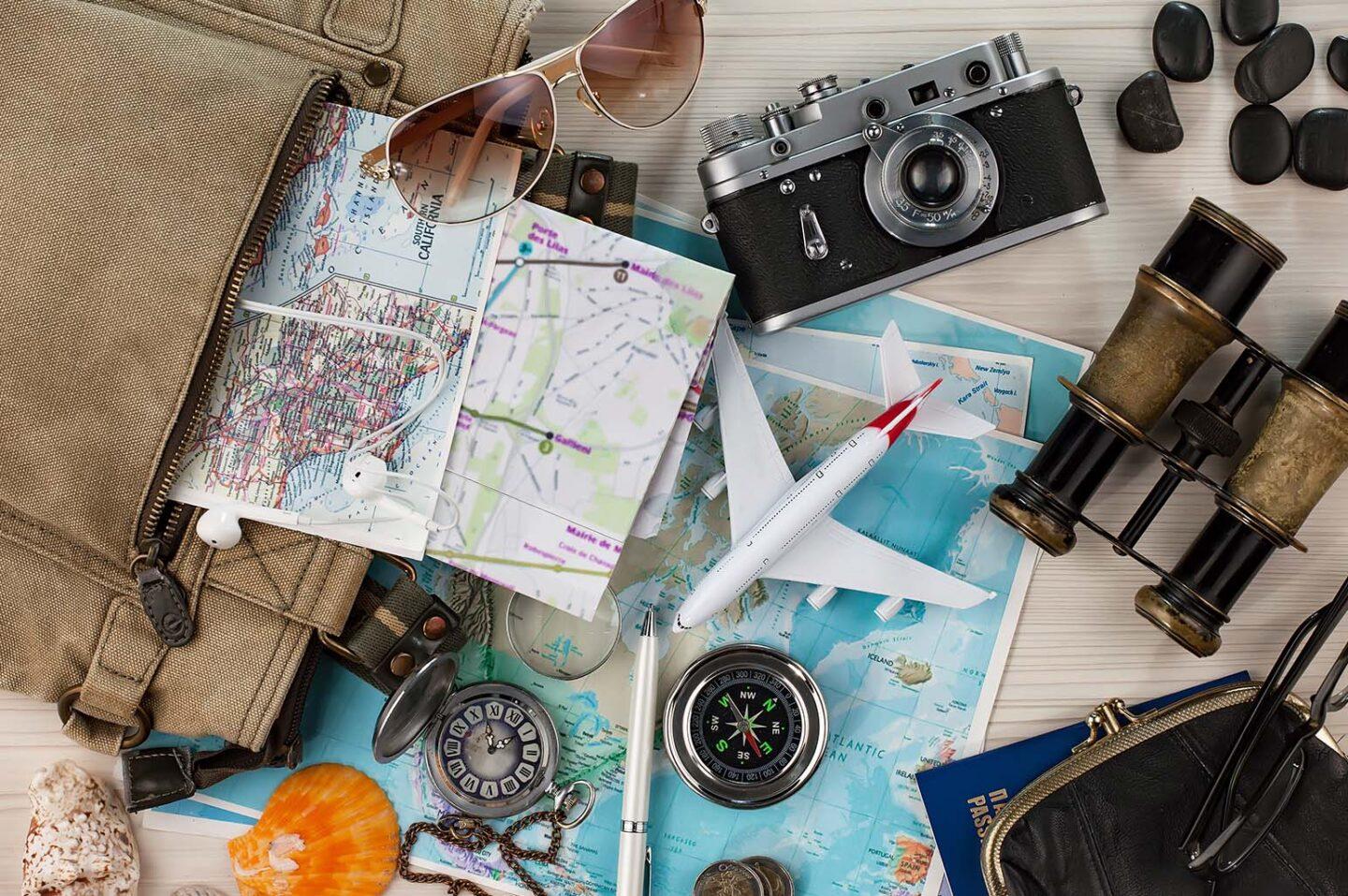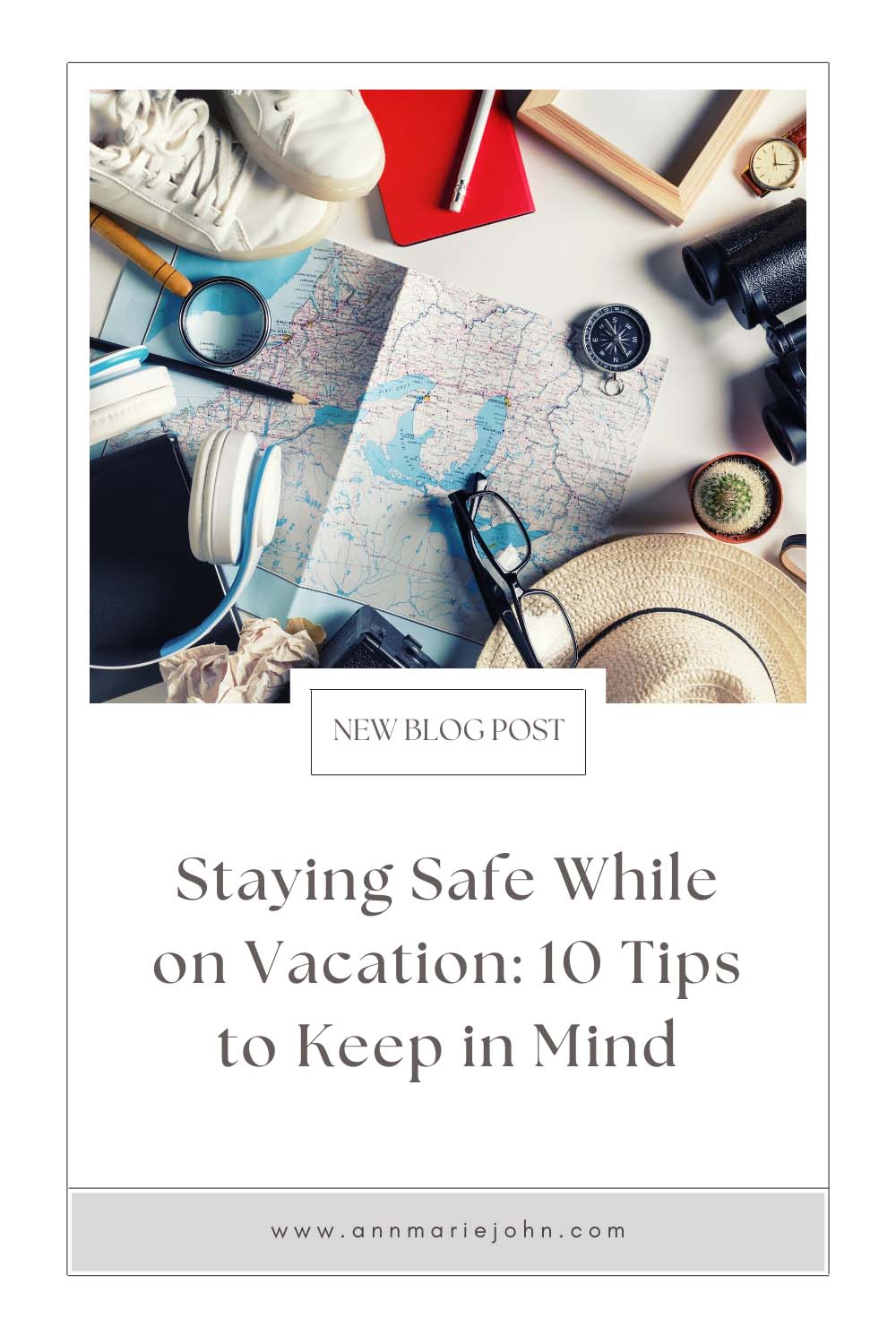Don’t let your summer get ruined by a vacation gone wrong. Use these tips to keep you and those you’re traveling with safe while away – so that all you have to worry about is having some fun!

A vacation should be a time for relaxation and fun, as opposed to being concerned about potential dangers that a person or family may face. However, anytime a person travels to somewhere new that they are unfamiliar with, it’s important to always be prepared. Tourists are often targets of violent and non-violent crimes due to their naivety in an area, which is why learning crucial tips for staying safe on vacation ahead of your travels is of paramount importance.

The Common Dangers of Vacations
In a study done by Arizona State University, it was found that theft was the most common type of danger tourists faced when traveling to a new area. However, the other common dangers faced included:
- Health risks that were caused by factors in a local area
- The dangers of getting lost in an unfamiliar area
- Injuries sustained during activities undertaken on vacation
- A misunderstanding of emergency services in a new area
- Irregular sleep patterns that lead to poor decision-making skills
10 Ways to Stay Safe While Traveling
Considering all of the above common dangers that a person may face while on their travels, learning how to prevent something from happening is crucial. Each of the following ten tips can help any traveler stay safe on their journey:
1. Check with your doctor before leaving town
First and foremost, before taking a vacation, a person should check in on their own health to be certain that traveling is a good idea. Contact your doctor and inform them of your travel plans, being sure to mention how you plan to get to your destination. Your doctor may advise that traveling to the destination by another method, if at all, would be preferred based on your personal health.
2. Research the area you are traveling to ahead of time
It’s no secret that everywhere around the world there are bad areas and good areas. The key, however, is knowing which is which. Conduct research on the destination you are traveling to well in advance so that you have a better understanding of the place you are visiting. Read trusted travel blogs that outline the safest neighborhoods, but also be sure to research where the unsafe areas are so that you can actively avoid them.
3. Carry your insurance information wherever you go
While this tip is more important for domestic travel as compared to international travel, it is still important nonetheless. When traveling anywhere in the United States, keep your insurance information in your wallet. Nobody hopes that they will be the victim of an accident, but if you are and you are unable to communicate with first responders or those at the hospital, your insurance will help them learn about your coverage.
4. Always have a plan in place
Creating a safety plan on vacation is a great way to prepare for the unknown that you hope will never occur. For example, if you fear that your child may be injured while on vacation, know where the nearest medical centers are and have a lawyer handle it in case it is a matter of personal injury.
5. Ask trustworthy locals about the area you are visiting
Building off of the earlier tip regarding researching an area you are traveling to, ask around when you reach your destination to be sure your research is accurate. Don’t just ask anybody off the street, however, as they may attempt to trick you in order to commit a crime. Ask someone, such as your hotel concierge, who is a trusted professional.
6. Avoid traveling at night as much as possible
Regardless of where you are in the world, the majority of crime happens when the sun goes down. Even if you are in an area that you perceive to be safe, crime can always happen. When traveling around an area that you are unfamiliar with, try to only travel during daylight hours. If you do need to travel at night, do your best to stick in a group.
7. Never flaunt personal belongings
Whether it’s a phone, wallet, watch, or something else, avoid showing your personal belongings clearly to those around you. This may simply make you a target for robbery if the wrong person sees you, which is why it’s important to be reserved when you are traveling, especially if you are carrying personal items.
8. Don’t inform anyone you meet of your travel plans
While strangers may seem friendly when you meet them in a bar or restaurant, you never know what they have planned. Don’t tell someone your travel plans if you just met them, and especially don’t tell them where you are staying. Be friendly to locals when you are traveling, but also use common sense.
9. Use the right bag
Packing for vacation can be difficult, especially when you also have to pack items you can bring to explore an area. To keep your belongings safe, consider using a travel-specific bag that often has security features such as locks or tracking capabilities. This can help local police in the event your belongings get stolen, or it can simply ward off potential thieves as it will require more effort to steal the belongings.
10. Try to go contactless
When traveling to an area that is more developed, consider trying to go contactless on your travels so that you only need to carry a phone with you. This will reduce the risk of you becoming a victim of theft, but the only downside is that if you lose your phone, you will need to start using physical credit cards.
In Conclusion
With the right mindset, anyone can stay safe on vacation without having to actively think about watching everything around them. With that said, it’s always a great idea to keep your head on a swivel when traveling somewhere new and to present yourself with confidence. Even if a potential criminal notices that you are not from the area, a confident demeanor will reduce your risk of becoming a victim of crime.
